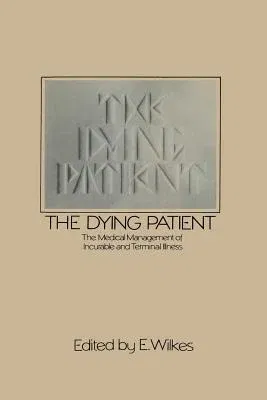The Dying Patient: The Medical Management of Incurable and Terminal Illness (1982)Paperback - 1982, 24 January 2012

Qty
1
Turbo
Ships in 2 - 3 days
In Stock
Free Delivery
Cash on Delivery
15 Days
Free Returns
Secure Checkout
Print Length
336 pages
Language
English
Publisher
Springer
Date Published
24 Jan 2012
ISBN-10
9401162484
ISBN-13
9789401162487
Description
Product Details
Book Edition:
1982
Book Format:
Paperback
Country of Origin:
NL
Date Published:
24 January 2012
Dimensions:
23.39 x
15.6 x
1.85 cm
ISBN-10:
9401162484
ISBN-13:
9789401162487
Language:
English
Location:
Dordrecht
Pages:
336
Publisher:
Weight:
494.42 gm

